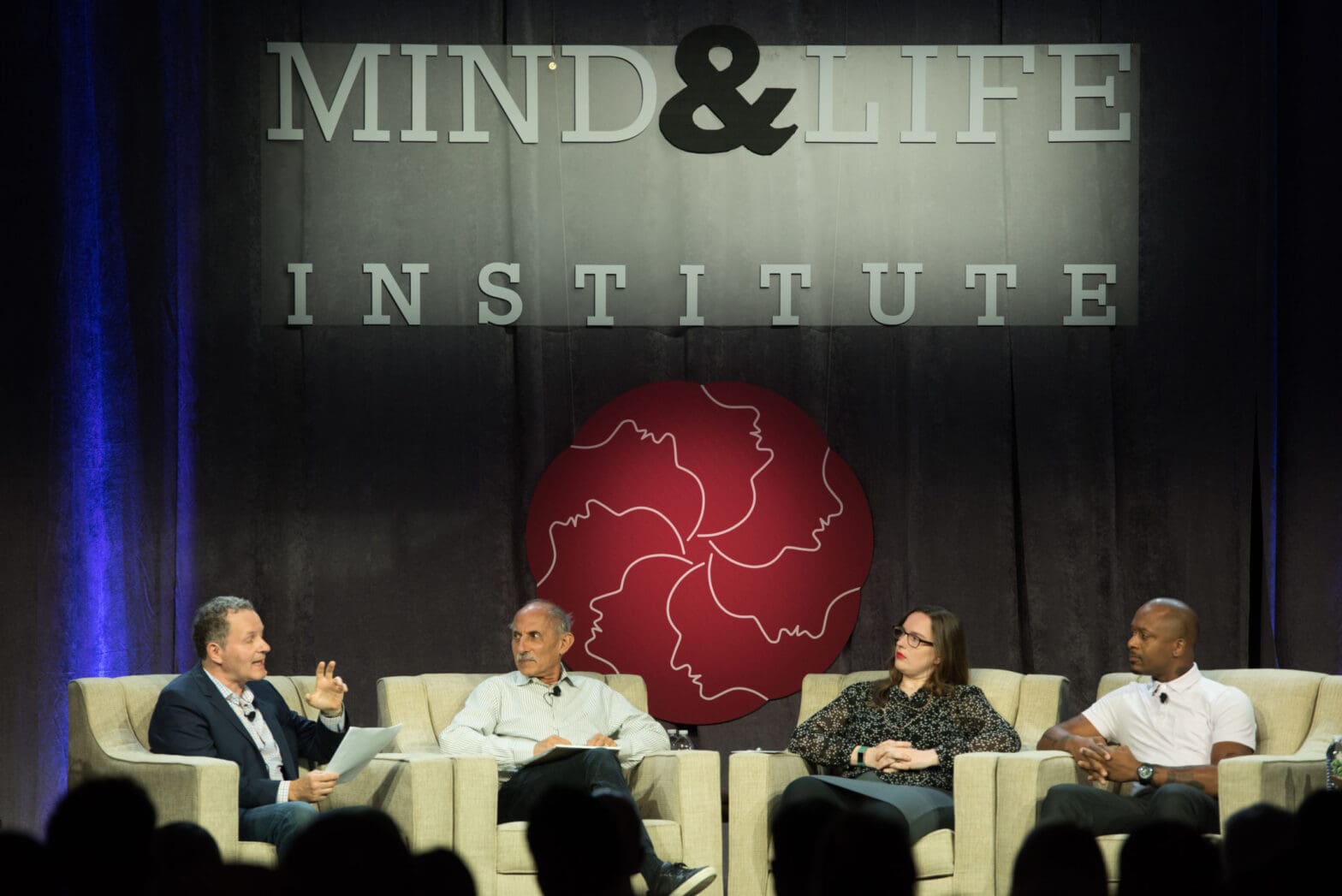This two-part workshop will explore the practice of centering prayer from both a theological and neurological perspective, with an emphasis on how this no-frills method of meditation in the Christian tradition differs from the standard ‘entry-level’ mindfulness practice with which it is often confused. Each session will include teaching and a short practice.
Topic Archives:
The Ceremony of Art: Mindfulness In Indigenous Art and Vision
This lecture follows the tracks of the visionary/artist of Indigenous America as a path of mindfulness. The first track reveals the nature of dream and vision as viewed through the eyes and words of American Indian visionaries and artists, past and present. The second track explores the central role of vision in the context of …
Continue reading “The Ceremony of Art: Mindfulness In Indigenous Art and Vision”
Master Lectures: Mindfulness Training in High Demand, Time-Pressured Real-world Settings: The Good, the Bad, and the Ugly
The science and practice of mindfulness-based interventions have witnessed exponential growth in recent years with applications in diverse settings, including health care, education, the workplace, sports, and the military. Such expansion raises complex and engaging questions. This lecture will discuss efforts to offer short-form mindfulness training programs contextualized for various high demand, time-pressured groups. Three …
Contemplative Session: Ancient Hebrew Sound Meditation
In the ancient Hebrew tradition, sacred sound is utilized as a primary contemplative practice to shift consciousness into a state of greater presence and expansion. In this session, we will explore the contemplative dimensions of the “Shema”, an ancient Hebrew chant that comes from the Hebrew Bible and that serves as one of the most …
Continue reading “Contemplative Session: Ancient Hebrew Sound Meditation”
Standing Meditation and Qigong
These sessions will explore Daoist (Taoist) standing meditation, Yangsheng (nourishing life) and movement practices. Also referred to as Qigong (ch’i-kung; qi Exercises), Yangsheng is a form of health and longevity practice. Each session will begin with formal instruction on quiet standing (jingzhan) and then explore specific movement practices. While some attention will be given to …
Contemplative Session: Watching the Breath
Hosh dar dam, “be aware of your breath,” is the first principle in Sufi meditation. In this session we will enter into a state of subtle self-awareness by attending to the influx and outflow of the breath. Hitherto experienced as a more or less homogenous monolith, the body now reveals itself as a dynamic vortex …
Continue reading “Contemplative Session: Watching the Breath”
Keynote Panel “Contemplative Practice Enters the Digital Age”
Digital didactics, such as MOOCS and browser-based online programs have opened up realms of content to thousands who for reasons of geography, expense or convenience would otherwise not have had access to these materials. Allowing anyone around the world to take a course at Stanford or learn Geometry on Khan Academy has helped address educational …
Continue reading “Keynote Panel “Contemplative Practice Enters the Digital Age””
On the Placebo Effect and Its Implications for the Science of Mindfulness
This session will present recent studies on the placebo effect as critical points of reference for understanding the “context” of mindfulness. I will focus on numerous “non-specific” mechanisms that have been evaluated in studies of the placebo effect, including the therapeutic effects of relationship, expectation, hope, surprise, and embodiment. I will draw from published studies …
Continue reading “On the Placebo Effect and Its Implications for the Science of Mindfulness”
Plasticity of the Social Brain: Effects of a One-year Mental Training Study on Social Connectedness, Compassion, Theory of Mind, Social Stress, and the Body
In the last decades, plasticity research has suggested that training of mental capacities such as attention, mindfulness and compassion is effective and leads to positive changes in socio-affective and cognitive functions. Tania Singer will show first results of the ReSource Project, a large-scale multi-methodological one-year secular mental training program in which participants were trained in …
How Difference is Constructed and What We Can Do About It: Perspectives across Evolution, Culture, and Mindfulness Training
Conceptual classification and linguistic reification are intrinsic to, if not diagnostic of, humans as a species. These potentiate but do not necessitate what Foucault calls “dividing practices,” which inscribe stigma and prejudicial discrimination weighted by power to effect domination and control of some classes of people by others. These processes entail intrasubjective dynamics, notes Bruce …


